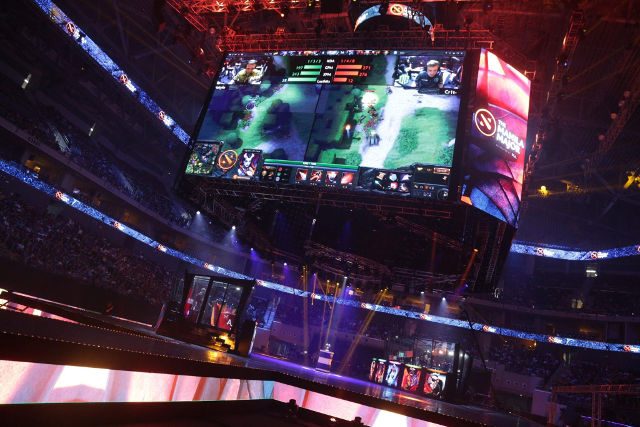SUMMARY
This is AI generated summarization, which may have errors. For context, always refer to the full article.

MANILA, Philippines – The recently implemented regulations of the Games and Amusement Board (GAB) are starting to have an effect on the burgeoning esport scene in the Philippines.
In early January, Dota 2 publisher Valve rescinded the status of the Galaxy Battles II tournament, a local contest to be held from January 19 to 21 at the Philippine Arena, as a Major. This means competing teams will no longer be getting pro circuit points from the tourney that would’ve counted towards The International, Dota 2’s biggest annual tournament.
Valve said in a post that its decision was “based on what we feel are unreasonable infringements on the privacy of the players, as a condition to enter the country.” This was a reference to medical tests such as ECG and drug tests for methampethamine and marijuana that the GAB now requires for esport athletes.
Valve also cited the country’s current “local climate” as a key factor, which Kotaku’s esport sub-site Compete interpreted as a possible euphemism for President Rodrigo Duterte’s drug war and the thousands of extrajudicial killings reported in the country.
Since July 2017, GAB started to recognize esport players as athletes, which meant that they now had to comply to the same testing as regular athletes. This has benefited local esport players, who are now able to secure athletic visas that helped them join international contests. Prior to the recognition, esport players faced visa problems that kept them from competing in important tourneys outside the country, particularly in Dota 2.
The organizers of Galaxy Battles II, Fallout Gaming, were supportive of the GAB measures even if it had caused Valve’s rescission.
In an email sent to Rappler, they said, “Our company feels that this regulation is a step towards the right direction to legitimize esports. We are currently working hard to promote a stronger and healthier gaming community.”
“In compliance with the Philippine government, the Galaxy Battles Management believes that following regulations will help shape the future of esports,” the statement added.
GAB also released a statement on the matter, saying that the drug and health testing requirements are for safety reasons and “for the protection of the integrity of the games.”
“This gains added significance with the efforts of the Philippine government to combat the proliferation and use of illegal drugs in the country,” GAB said.
On the flip side
An organizer of fighting game tourneys in the Philippines was more critical of the GAB guidelines.
Speaking to Kotaku, Franz “d3v” Co, one of the organizers of fighting game contest Manila Cup, said: “The resolution threatens local majors since everyone competing may now be required to get a license as a pro. This is a bad thing for fighting game events since the majority of our attendees aren’t ‘professional’ and are simply there for the experience and to play games, not to actually win the damn thing.”
Co is critical of several stipulations in GAB’s resolution, a copy of which has been posted on Facebook:
Among Co’s complaints is that any tourney with a prize of over P10,000 now has to be registered with GAB. This may not be a big worry for the bigger Dota 2 and League of Legends scenes – two of the biggest esport games in the world – but for the smaller tournaments, it may be a problem.
As an official GAB event, players will have to acquire pro licenses that cost P800 and will have to be renewed every two years. Tournaments will also now have to provide 3% of their “gross gate receipts and income from television, radio, and motion picture rights” to the board.
Co worries that these licenses and official GAB sanctioning can become bureacratic in nature, which may put a damper on the growth of the esport scene, particularly the fighting game scene. Co also considers the P800-license too costly for the low-tier to mid-tier player just looking to get a little tournament time, resulting in the alienation of this part of the esport scene.
Co told Kotaku: “No one involved in the fighting game community was consulted on this. Right now, it feels like rug has been pulled out from under us, especially after all our progress.”
As 2018 rolls along, we’ll see how GAB’s participation affects the scene as a whole, as more esport contests are held. In the meantime, what we can see is that some parties may be more supportive of GAB’s new guidelines while some, less so. – Rappler.com
Add a comment
How does this make you feel?
There are no comments yet. Add your comment to start the conversation.